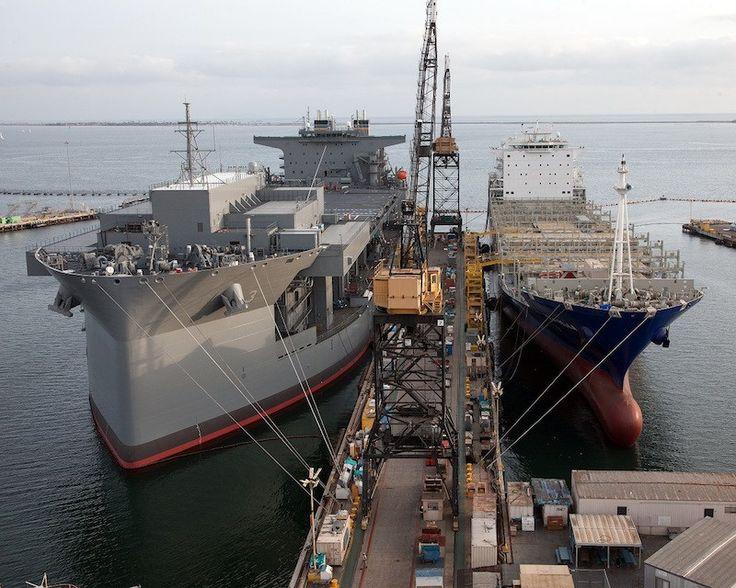In today’s fast-paced and interconnected world, businesses heavily rely on smooth transportation and delivery systems to keep up with demand. Whether it's delivering goods, transporting personnel, or managing field services, fleet logistics support has become a critical factor in operational success. Companies that harness the power of smart fleet logistics gain a competitive edge through enhanced productivity, reduced costs, and improved customer satisfaction.
But what exactly does fleet logistics support entail, and how can it truly improve operations?
What Is Fleet Logistics Support?
Fleet logistics support refers to the systems, processes, and strategies used to manage and optimize a company’s transportation assets. This includes vehicle maintenance, routing, fuel management, compliance with regulations, and real-time tracking of assets. It’s a holistic approach that connects the dots between vehicles, drivers, dispatchers, and customers—ensuring every aspect of fleet operation runs like clockwork.
Key Benefits of Fleet Logistics Support for Operations
1. Improved Efficiency and Productivity
One of the most direct advantages of fleet logistics support is the boost in efficiency. With the right tools, companies can monitor vehicle usage, optimize routes, and reduce idle times. Real-time data enables dynamic dispatching, allowing managers to assign the nearest vehicle to a job or reroute deliveries based on traffic conditions. This not only speeds up service but also reduces fuel consumption and wear on vehicles.
2. Cost Reduction
Fleet operations are often a major cost center for businesses. From fuel to maintenance, expenses can quickly spiral out of control without proper oversight. Fleet logistics support helps reduce costs by:
-
Preventing unnecessary fuel usage through better routing.
-
Automating maintenance schedules to avoid costly breakdowns.
-
Monitoring driver behavior to reduce fines, accidents, and insurance premiums.
Over time, these small savings accumulate into significant cost reductions that directly benefit your bottom line.
3. Enhanced Safety and Compliance
Driver safety and vehicle compliance are non-negotiable in any fleet operation. Fleet logistics support platforms often include features that monitor driver behavior (such as speeding, harsh braking, and acceleration) and alert management of risky practices. These insights can be used for coaching and improving safety protocols.
Moreover, automated logging of vehicle inspections, maintenance, and legal documentation helps ensure your fleet remains compliant with industry regulations—avoiding potential fines and reputational damage.
4. Better Customer Experience
In an era where customers expect fast and transparent service, fleet logistics support provides a key differentiator. Real-time tracking allows customers to follow their deliveries live, while improved routing ensures on-time arrival. Fewer delays and proactive communication contribute to higher customer satisfaction and loyalty.
5. Scalability
As your business grows, so does your logistical complexity. Manual processes that worked for a small fleet become unmanageable for larger operations. Fleet logistics support scales with your needs, helping you manage more vehicles, drivers, and routes without sacrificing performance. Integrated data analytics also offer strategic insights for expansion and resource allocation.
The Role of Technology in Fleet Logistics
Modern fleet logistics support relies heavily on technology to function effectively. Key tools include:
-
Fleet Management Software (FMS): Centralized platforms that provide an overview of your entire fleet, including vehicle location, driver behavior, maintenance, and performance metrics.
-
GPS Tracking and Telematics: These tools allow real-time tracking of vehicles and provide data on route efficiency, speed, idling, and more.
-
Predictive Maintenance Tools: By analyzing vehicle usage patterns, these systems can forecast when a vehicle is likely to need maintenance—reducing downtime.
-
AI and Data Analytics: Smart algorithms can analyze vast amounts of data to recommend optimal routes, schedules, and fleet compositions based on operational needs.
Investing in these technologies may seem daunting, but the return in efficiency, savings, and reliability makes it well worth the effort.
Case in Point: Real-World Impact
Let’s consider a logistics company managing a fleet of 100 delivery trucks. Prior to implementing a fleet logistics support system, they faced frequent delays, high fuel costs, and maintenance issues that disrupted service.
After deploying an integrated FMS with GPS tracking, the company saw:
-
A 20% reduction in fuel costs due to optimized routing.
-
A 35% decrease in late deliveries.
-
A 25% drop in vehicle downtime through predictive maintenance alerts.
-
An improvement in driver accountability, reducing accident rates by 15%.
This example showcases how fleet logistics support can directly impact key performance indicators across the board.
Final Thoughts
Fleet logistics support is not a luxury—it’s a necessity in modern operations. As businesses navigate increasing pressure for faster, more efficient, and more transparent delivery systems, those with well-managed fleets will rise above the competition.
By integrating technology, embracing data-driven decision-making, and prioritizing efficiency, companies can transform their fleet operations from a cost burden into a strategic advantage.

